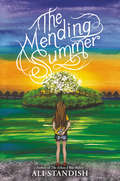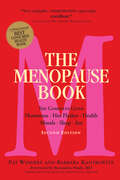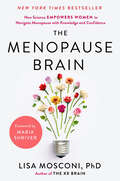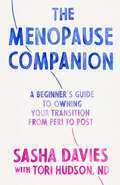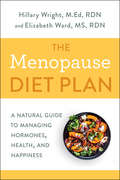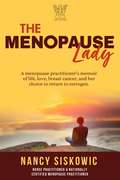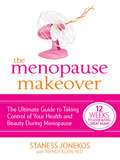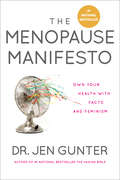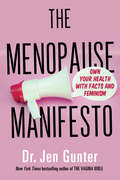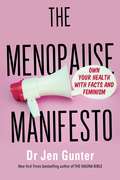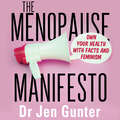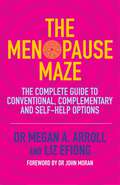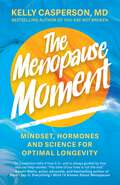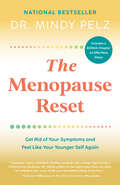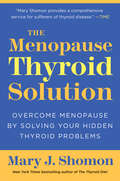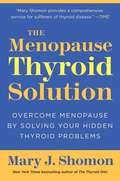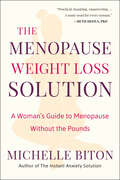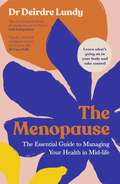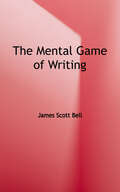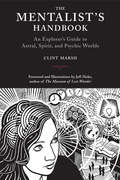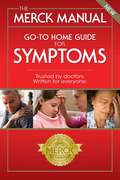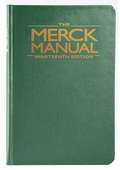- Table View
- List View
The Mending Summer
by Ali StandishPerfect for fans of Orphan Island and Wishtree, The Mending Summer is the next stunning middle grade novel from Ali Standish—author of the Carnegie Medal nominee The Ethan I Was Before and August Isle, Bad Bella, and How to Disappear Completely—about a girl who is struggling to deal with her father’s alcoholism when she discovers an enchanted lake… <P><P> Some summers are meant to break your heart. Others to mend it. Every once in a while, a summer rolls around that does both. For Georgia, this summer is shaping up to be a big disappointment. Mama is busy studying for her biology degree. Daddy is working nights, and often the man who comes home isn’t Daddy. He’s a man who looks like Daddy, but walks a little wobbly. Who sounds like Daddy, but sings a little too loud. Georgia calls him the Shadow Man. <P><P> So now, instead of riding horses with her friends at camp, Georgia is sent off to the country to stay with her mysterious great-aunt for the summer to avoid her parents’ fighting. <P><P> There, a lonely Georgia meets a mysterious friend named Angela and together, they discover a magical lake—one that can make wishes come true. At first, the lake offers Georgia a thrilling escape from her worries and hope that she can use its magic to heal her family. But as things grow worse at home, a troubled boy appears at the lake and the wishes threaten to spiral out of control . . . Award-winning author Ali Standish explores the courage it takes to piece your heart back together again when those closest to you break it.
The Menopause Book: The Complete Guide: Hormones, Hot Flashes, Health, Moods, Sleep, Sex
by Barbara Kantrowitz Pat WingertIt’s the all-in-one bible for women approaching or experiencing menopause, now in a new, revised edition. <P><P> Updated throughout and with 20% new material, The Menopause Book incorporates the latest medical findings, cutting-edge research, and best-practices advice on hormones and hormone therapy; hot flashes; heart disease and stroke; breast cancer in older women; osteoporosis and estrogen; weight gain and weight loss; the pros and cons of breast implants; and more. <P>Of all the books on the market, this is the soundest—based on science, the material is vetted by top authorities in the field, the facts are sure, the writing engaging, the tone upbeat.
The Menopause Brain: New Science Empowers Women to Navigate the Pivotal Transition with Knowledge and Confidence
by Lisa MosconiAn instant New York Times bestseller!The New York Times bestselling author of The XX Brain shows women how to navigate menopause successfully and come out the other side with an even better brain.Menopause and perimenopause are still a black box to most doctors, leaving patients exasperated as they grapple with symptoms ranging from hot flashes to insomnia to brain fog. As a leading neuroscientist and women&’s brain health specialist, Dr. Mosconi unravels these mysteries by revealing how menopause doesn&’t just impact the ovaries—it&’s a hormonal show in which the brain takes center stage. The decline of the hormone estrogen during menopause influences everything from body temperature to mood to memory, potentially paving the way for cognitive decline later in life. To conquer these challenges successfully, Dr. Mosconi brings us the latest approaches—explaining the role of cutting-edge hormone replacement therapies like &“designer estrogens,&” hormonal contraception, and key lifestyle changes encompassing diet, exercise, self-care, and self-talk. Best of all, Dr. Mosconi dispels the myth that menopause signifies an end, demonstrating that it&’s actually a transition. Contrary to popular belief, if we know how to take care of ourselves during menopause, we can emerge with a renewed, enhanced brain—ushering in a meaningful and vibrant new chapter of life.
The Menopause Companion: A Beginner's Guide to Owning Your Transition, from Peri to Post
by Sasha Davies Tori HudsonAn indispensable primer on menopause that reads like advice from a close friend, co-written by a medical doctor and expert in women&’s health.It&’s one of the most important, least discussed events that happens for half the population. It&’s a physiological and psychosocial event, a cultural construct, and a deeply personal experience all woven together in a jumbled knot. It&’s menopause. But why is there so much mystery surrounding the topic? This accessible and to-the-point guide makes the entire landscape of menopause—not just the physiology—more transparent. If what you need is a level-headed friend to help walk you through the litany of fears to face, questions to ask, and practical decisions to make throughout your transition, this guidebook offers no-nonsense, straightforward, medically backed information about what to expect and what you can do about it. It offers: A refresher course on reproductive system anatomy, life cycle, and physiology—what are hormones, and how do they influence my body?Information on how to recognize and what to do about common symptoms—when should I see a health practitioner and how do I talk to them?Context for the history of menopause medically and culturally—what do scientists actually know and what are the major myths? Advice on how to get ready, notice changes, and call in support—what is available to try in terms of products, tools, medications, holistic support, or self-care practices?
The Menopause Diet Plan: A Natural Guide to Managing Hormones, Health, and Happiness
by Hillary Wright Elizabeth M. WardMinimize the symptoms of perimenopause and menopause naturally through a sustainable, enjoyable eating plan, physical activity, and other beneficial lifestyle habits&“My friends and well-respected colleagues have written The Menopause Diet Plan to help you feel healthier, happier, and more confident during this change in your life.&”—Maye Musk, MS, RDN, and author of A Woman Makes a PlanMenopause is uncharted territory for women, and it can be difficult to know how to ease the effects of hormonal changes that can often start in your 40s. With honesty and optimism, The Menopause Diet Plan encourages a positive, fad-free approach to managing your physical and emotional health during perimenopause and menopause. It highlights current scientific knowledge about the best diet and lifestyle choices to manage your weight; keep your heart, brain, and bones healthy; and decrease the risk for cancer and other chronic conditions. It also offers natural strategies to help diminish hot flashes, manage sleep difficulties and mood swings, improve energy, and more. The Menopause Diet Plan takes a unique approach to eating before, during, and after menopause. Registered dietitians Hillary Wright and Elizabeth Ward provide a customizable, plant-based eating plan that is rich in protein, fiber, and other beneficial nutrients, moderate in carbohydrates, and low in saturated fat, sodium, and added sugars. Balancing evidence-based advice with real-life circumstances and personal experience, it combines the best of the world's healthiest diets with the latest nutrition research for women in the menopause transition. Recipes such as Peanut Butter Smoothie, Chicken Italiano, and Chocolate Oatmeal Energy Balls make it easier to eat delicious, satisfying foods that nourish your body. With a comprehensive approach to better health, The Menopause Diet Plan helps women take charge of their well-being and live life to the fullest.
The Menopause Lady: A Menopause Practitioner's Memoir of Life, Love, Breast Cancer, and Her Choice to Return to Estrogen.
by Nancy SiskowicThis memoir is about life, love, facing breast cancer with its challenges and change. Nancy begins this story with segments from her life that helped form her into the woman she is today. As a nurse practitioner with a specialty in menopause for the past 25 years, she knew she was about to face a tumultuous battle. Blindsided by the diagnosis of breast cancer, she had turned to her journal for guidance and calm. Hormone therapy had been a lifeline to her health and sanity for many years, but now she had to reconcile with the thought of letting go of her estrogen patch. As she gradually reduced the size of the patch while awaiting surgery, symptoms she had experienced years before crept back with a vengeance - hot flashes, night sweats, insomnia, brain fog, irritability, mood swings. The incredible shifts overwhelmed her, she felt as if her life was falling apart. She could still help her patients, but unfortunately not help herself. Suddenly finding herself in a patient role, she knew she needed to speak up and to be heard. Thus began her process of research, seeking out and speaking with experts in the menopause field about hormones after breast cancer, daring to question medical professionals, and ultimately finding her voice. Finally, after doing her homework, journaling extensively and assuming personal responsibility for her future health, she returned to her beloved estrogen. It was not an easy path.
The Menopause Makeover
by Staness JonekosYou can feel like yourself againHot flashes and sleepless nights? Feeling anxious and irritable? Frustrated with weight gain? It's time for a makeover-a menopause makeover!Based on the latest scientific research, and designed for both pre- and post-menopausal women, The Menopause Makeover is a proven, eight-step program to help you reclaim your health-and your life.- Evaluate if hormone therapy is right for you.- Beat belly bulge with The Menopause Makeover food pyramid and recipes.- Tone up and trim down with The Menopause Makeover fitness formula.- Boost your libido and learn to love intimacy again.- Regain your vibrant, youthful glow with essential beauty tips.- Manage stress and get off the mood-swing roller coaster.- Stay motivated with self-assessments and tools to track your progress.
The Menopause Manifesto: Own Your Health with Facts and Feminism
by Dr. Jen GunterIn her follow-up to the #1 bestseller The Vagina Bible, Dr. Jen Gunter, Canadian OB/GYN and the internet's most fearless advocate for women's health, brings us empowerment through knowledge by countering stubborn myths and misunderstandings about menopause with hard facts, real science, fascinating historical perspective, and expert advice.The only thing predictable about menopause is its unpredictability. Factor in widespread misinformation, a lack of research, and the culture of shame around women's bodies, and it's no wonder women are unsure what to expect during the menopause transition and beyond. Menopause is not a disease--it's a planned change, like puberty. And just like puberty, we should be educated on what's to come years in advance, rather than the current practice of leaving people on their own with bothersome symptoms and too much conflicting information. Knowing what is happening, why, and what to do about it is both empowering and reassuring. Frank and funny, Dr. Jen debunks misogynistic attitudes and challenges the over-mystification of menopause to reveal everything you really need to know about:* Perimenopause * Hot flashes * Sleep disruption * Sex and libido * Depression and mood changes * Skin and hair issues * Outdated therapies * Breast health * Weight and muscle mass * Health maintenance screening * And much more! Filled with practical tips, useful information and startling insights, this essential guide will revolutionize how women experience menopause--and show them how their lives can be even better for it.
The Menopause Manifesto: Own Your Health with Facts and Feminism
by Dr. Jen GunterAn Instant New York Times, Washington Post, USA Today, San Francisco Chronicle, and Publishers Weekly Bestseller!A Next Avenue Influencer in Aging 2021#1 Canadian Bestseller Just as she did in her groundbreaking bestseller The Vagina Bible, Dr. Jen Gunter, the internet&’s most fearless advocate for women&’s health, brings you empowerment through knowledge by countering stubborn myths and misunderstandings about menopause with hard facts, real science, fascinating historical perspective, and expert advice. "I feel more equipped to care for my patients, challenge the patriarchy, and empower & educate thanks to her work and advocacy.&” —Dr. Danielle Jones (Mama Doctor Jones) &“An exhilarating read and a comprehensive review of all things menopause.&” —North American Menopause Society&“Gynecologist Gunter (The Vagina Bible) helps women navigate the ins and outs of menopause in this delightfully conversational and strongly feminist guide. Readers looking to separate menopausal fact from fiction should take note.&” —Publishers Weekly&“Gunter mixes sound medical information with a bit of humor and a lot of candor…[this] frank and expert guide provides an informative and reassuring look at a long, often baffling and infuriating phase of life.&” —Booklist The only thing predictable about menopause is its unpredictability. Factor in widespread misinformation, a lack of research, and the culture of shame around women&’s bodies, and it&’s no wonder women are unsure what to expect during the menopause transition and beyond. Menopause is not a disease—it&’s a planned change, like puberty. And just like puberty, we should be educated on what&’s to come years in advance, rather than the current practice of leaving people on their own with bothersome symptoms and too much conflicting information. Knowing what is happening, why, and what to do about it is both empowering and reassuring. Frank and funny, Dr. Jen debunks misogynistic attitudes and challenges the over-mystification of menopause to reveal everything you really need to know about: *Perimenopause * Hot flashes * Sleep disruption * Sex and libido * Depression and mood changes * Skin and hair issues * Outdated therapies * Breast health * Weight and muscle mass * Health maintenance screening * And much more! Filled with practical, reassuring information, this essential guide will revolutionize how women experience menopause—including how their lives can be even better for it!&“Read this book immediately.&” —New York Times bestseller Ayelet Waldman, author of A Really Good Day and Love & Treasure&“This is the new &‘it&’ book for women who want to prepare for or understand what menopause is (and isn't).&” —Dr. Jennifer Lincoln
The Menopause Manifesto: Own Your Health with Facts and Feminism
by Dr. Jennifer Gunter'A guide to counteract medical misogyny' New Scientist'The world's most famous - and outspoken - gynaecologist' GuardianIn The Menopause Manifesto internationally renowned, New York Times bestselling author Dr Jen Gunter brings you empowerment through knowledge by countering stubborn myths and misunderstandings about menopause with hard facts, real science, fascinating historical perspective and expert advice.The only thing predictable about menopause is its unpredictability. Factor in widespread misinformation, a lack of research, and the culture of shame around women's bodies, and it's no wonder women are unsure what to expect during the menopause transition and beyond.Menopause is not a disease - it's a planned change, like puberty. And just like puberty, we should be educated on what's to come years in advance, rather than the current practice of leaving people on their own with bothersome symptoms and too much conflicting information. Knowing what is happening, why and what to do about it is both empowering and reassuring.Frank and funny, Dr Jen debunks misogynistic attitudes and challenges the over-mystification of menopause to reveal everything you really need to know about:* Perimenopause* Hot flashes* Sleep disruption* Sex and libido* Depression and mood changes* Skin and hair issues* Outdated therapies* Breast health* Weight and muscle mass* Health maintenance screening* And much moreFilled with practical, reassuring information, this essential guide will revolutionise how women experience menopause - including how their lives can be even better for it!
The Menopause Manifesto: Own Your Health with Facts and Feminism
by Dr. Jennifer Gunter'A guide to counteract medical misogyny' New Scientist'The world's most famous - and outspoken - gynaecologist' GuardianIn The Menopause Manifesto internationally renowned, New York Times bestselling author Dr Jen Gunter brings you empowerment through knowledge by countering stubborn myths and misunderstandings about menopause with hard facts, real science, fascinating historical perspective and expert advice.The only thing predictable about menopause is its unpredictability. Factor in widespread misinformation, a lack of research, and the culture of shame around women's bodies, and it's no wonder women are unsure what to expect during the menopause transition and beyond.Menopause is not a disease - it's a planned change, like puberty. And just like puberty, we should be educated on what's to come years in advance, rather than the current practice of leaving people on their own with bothersome symptoms and too much conflicting information. Knowing what is happening, why and what to do about it is both empowering and reassuring.Frank and funny, Dr Jen debunks misogynistic attitudes and challenges the over-mystification of menopause to reveal everything you really need to know about:* Perimenopause* Hot flashes* Sleep disruption* Sex and libido* Depression and mood changes* Skin and hair issues* Outdated therapies* Breast health* Weight and muscle mass* Health maintenance screening* And much moreFilled with practical, reassuring information, this essential guide will revolutionise how women experience menopause - including how their lives can be even better for it!
The Menopause Maze: The Complete Guide to Conventional, Complementary and Self-Help Options
by Dr Megan Arroll Dr John Moran Liz Efiong"Hot flushes, night sweats, insomnia... How on earth do I cope with symptoms of the menopause?" There is no single answer to this question. Based on up-to-date research, this book provides an honest account of the pros and cons of the different options for managing the menopause so that you can make an informed decision about the best approach for your particular situation. It covers hormone replacement therapy (HRT), bioidentical HRT, medication, lifestyle, nutrition, and complementary therapies, from acupuncture and reflexology to tai chi and yoga. This is everything you need to know about the issues you may face during the perimenopause and menopause, how to support your body as the changes start, and the conventional, alternative and self-help therapies that can ease your symptoms.
The Menopause Moment: Mindset, Hormones and Science for Optimal Longevity
by Kelly Casperson M.D.What if everything you've been told about midlife and menopause is wrong?For too long, women have been fed fear and confusion about hormones, aging, and what it means to navigate midlife. The result is a generation of women left guessing about their own bodies, misinformed by outdated science, and held back by myths that serve no one.This book is not here to tell you what to do; it's here to give you the knowledge to decide for yourself because women like you are smart. You'll learn the truth about what happens to your body in midlife, how hormones actually work (without the hype or fearmongering), and evidence-based strategies to feel your best and the power to live life on your terms - in health and with science-backed strategies for your longevity. Midlife isn't an ending. It's an evolution. And when you understand what's happening in your body, you can step into this next chapter with confidence, clarity, and power.Are you ready to take back the narrative?
The Menopause Moment: Mindset, Hormones and Science for Optimal Longevity
by Kelly Casperson M.D.What if everything you've been told about midlife and menopause is wrong?For too long, women have been fed fear and confusion about hormones, aging, and what it means to navigate midlife. The result is a generation of women left guessing about their own bodies, misinformed by outdated science, and held back by myths that serve no one.This book is not here to tell you what to do; it's here to give you the knowledge to decide for yourself because women like you are smart. You'll learn the truth about what happens to your body in midlife, how hormones actually work (without the hype or fearmongering), and evidence-based strategies to feel your best and the power to live life on your terms - in health and with science-backed strategies for your longevity. Midlife isn't an ending. It's an evolution. And when you understand what's happening in your body, you can step into this next chapter with confidence, clarity, and power.Are you ready to take back the narrative?
The Menopause Moment: Mindset, Hormones and Science for Optimal Longevity
by Kelly Casperson M.D.What if everything you've been told about midlife and menopause is wrong?For too long, women have been fed fear and confusion about hormones, aging, and what it means to navigate midlife. The result is a generation of women left guessing about their own bodies, misinformed by outdated science, and held back by myths that serve no one.This book is not here to tell you what to do; it's here to give you the knowledge to decide for yourself because women like you are smart. You'll learn the truth about what happens to your body in midlife, how hormones actually work (without the hype or fearmongering), and evidence-based strategies to feel your best and the power to live life on your terms - in health and with science-backed strategies for your longevity. Midlife isn't an ending. It's an evolution. And when you understand what's happening in your body, you can step into this next chapter with confidence, clarity, and power.Are you ready to take back the narrative?
The Menopause Reset: Get Rid of Your Symptoms and Feel Like Your Younger Self Again
by Dr. Mindy PelzA transformational plan for women who find themselves struggling through their menopausal years and who may be experiencing sudden symptoms such as sleepless nights, irritable moods, unexplained anxiety, trouble retrieving words, weight gain, and hot flashes.Are you struggling through your menopausal years?As if from out of nowhere, you experience symptoms such as sleepless nights, irritable moods, unexplained anxiety, trouble retrieving words, and hot flashes. Your weight won&’t budge, no matter how hard you try.How great would it feel to wake up feeling rested; have a brain that is calm, joyful, and clear; and to finally lose weight in an easy and sustainable way? The good news is that there is a way for you to do all of this and more.Nutrition and functional medicine expert and best-selling author Dr. Mindy Pelz has helped thousands of women just like you reset their health during their turbulent menopausal years. Join Dr. Mindy as she reconnects you to your more vibrant and youthful self.In The Menopause Reset, you will learn:What hormone changes cause, symptoms, and proven strategies to fix them The best way to stop your menopause-related memory loss How you can put an end to your symptoms without the use of medicationsHow to unstick your metabolism and finally lose the extra weightHow to slow the aging process and keep yourself forever youngYou don't have to suffer through these years. Join Dr. Mindy as she outlines her transformational Menopausal Reset program, which has helped thousands of women get their lives back. Hope is here!
The Menopause Thyroid Solution
by Mary J. ShomonFrom New York Times bestselling author and nationally recognized patient advocate Mary J. Shomon comes a groundbreaking guide to safely managing menopause through a better understanding of and better care for your thyroid. If you're one of the forty million American women struggling through menopause, you probably know all about the symptoms of fatigue, weight gain, and depression. But what you may not know is that the drop in reproductive hormones frequently triggers a thyroid slowdown--a "thyropause"--that can be the main cause for those troublesome symptoms. In fact, you may not even need hormone therapy, wild yam and progesterone creams, or herbs like black cohosh for a symptom-free menopause. What you really need is to begin to pay attention to your thyroid. In The Menopause Thyroid Solution, Mary J. Shomon will help you: Recognize the symptoms of a thyroid problem versus those of menopause Learn how to get your problems diagnosed and treated Find out what and how to eat, what medications to consider, what supplements to take, and what lifestyle changes to make Improve your metabolism and increase your energy
The Menopause Thyroid Solution
by Mary J. ShomonFrom New York Times bestselling author and nationally recognized patient advocate Mary J. Shomon comes a groundbreaking guide to safely managing menopause through a better understanding of and better care for your thyroid.If you're one of the forty million American women struggling through menopause, you probably know all about the symptoms of fatigue, weight gain, and depression. But what you may not know is that the drop in reproductive hormones frequently triggers a thyroid slowdown--a "thyropause"--that can be the main cause for those troublesome symptoms. In fact, you may not even need hormone therapy, wild yam and progesterone creams, or herbs like black cohosh for a symptom-free menopause. What you really need is to begin to pay attention to your thyroid.In The Menopause Thyroid Solution, Mary J. Shomon will help you:Recognize the symptoms of a thyroid problem versus those of menopause Learn how to get your problems diagnosed and treated Find out what and how to eat, what medications to consider, what supplements to take, and what lifestyle changes to makeImprove your metabolism and increase your energy
The Menopause Thyroid Solution: Overcome Menopause By Solving Your Hidden Thyroid Problems
by Mary J. ShomonFrom New York Times bestselling author and nationally recognized patient advocate Mary J. Shomon comes a groundbreaking guide to safely managing menopause through a better understanding of and better care for your thyroid.
The Menopause Weight Loss Solution: A Woman's Guide to Menopause Without the Pounds
by Michelle BitonThe Essential Guide to a Healthy, Positive, and Empowering Menopause Experience.You deserve to feel great about yourself. Take control of your menopause journey and your future. The Menopause Weight Loss Solution is the ultimate self-help guide for women seeking to stay healthy, positive, and beautiful during menopause.Packed with proven lifestyle tips and research-backed weight loss strategies, this book transforms the challenging mid-life transition into a period of opportunity and growth, helping you to feel empowered to navigate menopause without the extra pounds.The Menopause Weight Loss Solution uses a unique six-step program to help you avoid menopausal weight gain naturally by:• Stimulating your metabolism• Harnessing the power of your vagus nerve• Reinforcing eight key nutritional strategies• Incorporating daily pelvic floor and core exercises• Nurturing mindfulness and mindful eating• Knowing your female powers with confidenceThe Menopause Weight Loss Solution includes a friendly and accessible menopause plan that provides women with practical strategies to:• Lose weight naturally• Manage their hormones• Take control of their nervous system• Improve their moods• Feel more comfortable with their body• Change their mindsetResearch shows that losing just 10 pounds or 10% of body weight can significantly reduce hot flashes, night sweats, and other menopause-related symptoms. This menopause book demonstrates that weight loss during menopause doesn&’t have to be difficult.Whether you're seeking a hormone balance book, menopause nutrition advice, or solutions for menopause weight gain, The Menopause Weight Solution is your go-to menopause book. Embrace menopause health and achieve hormone balance with this comprehensive guide. It's the perfect book for women's health and weight loss for women.
The Menopause: The Essential Guide to Managing Your Health in Mid-Life
by Deirdre Lundy'The one-woman backbone of menopause care in Ireland' IRISH INDEPENDENTSuddenly feeling hot? Tired? Irritable? Not yourself?Having our bodies and minds change rapidly as we approach mid-life can be bewildering and even upsetting. It may be hard to get a handle on what's happening and what we can do about it.The Menopause is the handbook of everything you need to know from Ireland's leading menopause expert, Dr Deirdre Lundy. Drawing on decades of experience and on the most up-to-date research Dr Lundy . . .-Explains what's going on in your body - the key hormones that run your life, how they are changing and the impact of that-Helps you figure out where you are on the menopause spectrum and empowers you to have informed conversations with your doctor-Sets out approaches to dealing with symptoms - from nutrition, exercise, counselling and medication, to using hormone replacement therapies (HRT)-Explores every aspect of HRT - debunking the myths and explaining why it is helpful for many women-Addresses key areas of concern - from early onset menopause, to preserving vaginal, heart, breast and bone health, to managing your menopause if you have pre-existing health challengesDr Lundy came to public prominence during a remarkable ten-day discussion of the menopause on RTÉ Radio 1's Liveline. Now, as leader of Ireland's first dedicated menopause clinic, she continues her passionate advocacy for Irish women. The Menopause is her essential guide to having the best menopause you can and being as healthy and energized as possible in your middle years and beyond.________'Superb - essential reading for women and doctors alike' DR CIARA KELLY 'Essential, empowering and enjoyable - life-changing and potentially life-saving!' SALLYANNE BRADY, THE IRISH MENOPAUSE
The Mental Game of Writing: How to Overcome Obstacles, Stay Creative and Productive, and Free Your Mind for Success
by James Scott BellThe keys to success as a writer are yours for the thinking All success begins in the mind. For writers, the mind fuels the imagination and creates stories. But for authors who are productive and resilient, and see a good return on their efforts, there is another factor at work. They are winning the mental game of writing. Successful writers have the ability to inspire themselves to produce consistently, improve systematically, overcome obstacles and keep up a positive mental attitude. In this book, #1 bestselling writing teacher James Scott Bell takes you through the mental landscape of the successful author. He shows you not only how to stay on your game, but how to improve it. He gives you insights, strategies and techniques for blasting through walls and jumping over hurdles, setting you free to concentrate on what you love most - writing. You'll learn how to define true success, formulate goals and plans, find courage and commitment to write, unleash your creativity and write with joy. You'll also be given steps to handle challenges like stress, burnout, envy, expectations and the trap of comparison. In short, you'll learn to get all your mental jets going full blast so your writing can reach new heights "I need three things before I tackle a new novel: Diet Coke, a laptop, and my dog-eared copies of James Scott Bell's books on writing craft.
The Mentalist's Handbook
by Clint Marsh Jeff HokeThere is a world that mirrors our own. Everything in this world is made of substance finer than air, finer than light, finer than thought itself - the aether. In the aether there are inner sensations such as ideas and feelings that are as tangible as anything in the material world. In The Mentalist's Handbook, Clint Marsh gives us a glimpse of this world. He offers step-by-step exercises, detailed and beautifully written explanations and definitions, and gorgeous black and white illustrations by award-winning artist Jeff Hoke. Inspired by esoteric, occult, and magic books published over the last 150 years, Marsh has aspired to create something of singular importance in the tradition of classic occult manuals. Both practical and whimsical, and complete with visual aids, this field guide to the paranormal will appeal to students of the New Age, esoteric scholars, readers of post-modern and magical-realism, angel, ghost and fairy enthusiasts, comic and graphica fans, and artists alike.
The Merck Manual Go-To Home Guide for Symptoms
by Robert S. PorterThe Merck Manual Go-To Home Guide for Symptoms takes complex medical information and makes it easy to understand and accessible to an everyday audience. It covers a wide range of everyday symptoms, from abdominal pain to wheezing, and almost everything in between. Every section provides a comprehensive look at each symptom's Causes: both common and less-common, Evaluation: warning signs, when to see a doctor, what the doctor does, and testing, Treatment: a wide-array of options, and Key points: the most important information about the symptom. It also includes helpful tables and illustrations. Organized in a (2- color, 500 page) paperback format makes it easy for busy families to quickly find the information they need. Symptoms covered include: Back Pain, Cough, Fatigue, Fever, Headache, Heartburn, Itching, Joint Pain, Nausea, Swelling and many more....
The Merck Manual of Diagnosis and Therapy
by Robert S. PorterThe world's most widely used medical reference is now better than ever For its 19th Edition, the Merck Manual of Diagnosis and Therapy has been thoroughly updated and thoughtfully expanded, with more than 850 additional pages, 15 new chapters, over 300 new tables, and 56 new figures. Packed with essential information on diagnosing and treating medical disorders, this handy, compact guide was written by a team of clinicians for everyday use by medical professionals for delivery of the best care to their patients. Designed for maximum clinical utility, the new Merck Manual of Diagnosis and Therapy 19th edition makes it easy to find the right information, right when it is needed. It is a must-have for medical students, residents, practicing physicians, nurses, and allied health professionals.
